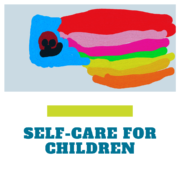Stop the Spread…of Rumors: Tips for Parents
For parents, there are few things more heartbreaking than seeing your child in pain—especially when the infliction is emotional, not physical. There are no ice packs, bandages, or pain relievers that can alleviate emotional pain and distress, which means that many parents are left feeling helpless when their child comes home from school having been the subject of the rumor mill.
This aggravating adolescent tendency is practically a rite of passage. We’ve all been the target, or heard about, or maybe even helped to spread a rumor about one of our peers at some point or another. Truthfully, some people never fully grow out of the “lure of grapevine,” if you will. Regardless of your own experiences and memories, your child’s adverse experiences involving hurtful rumors will be an entirely new beast. Therefore, we’ve compiled some strategies for parents to help if and when the unfortunate situation arises.
- Remind your teen that those closest to her will not be swayed or drawn into the hurtful gossip. Tell her that anyone who pays mind to or contributes to the rumors being spread either doesn’t know her or doesn’t truly care about her. Put these notions into perspective by providing your own example of a time when someone mischaracterized you. Explain that another person’s negative opinion, especially a person that doesn’t know you well, should be considered irrelevant. Add to this by explaining that your dignity and self-worth cannot be diminished by another person.
- Simply denying a rumor does nothing to squander it—in fact, denying may only make the situation worse. Tell your teen not to waste her energy on trying to convince her peers of what is true and what isn’t. Reaffirm the fact that the people who really know her won’t give any attention to ridiculous rumors. In addition, explain that her protestations only add fuel to the fire. Instead of fighting the rumors, do not give them any attention at all. Easier said than done, but ignoring gossip is the best way to remove yourself from these hostile situations.
- If social media becomes more of a platform for antisocial interactions, talk to teens about restricting their privacy settings to avoid derogatory comments and/or any issues involved with sharing or reposting photos. Parents need to remind teens that, for all of the positive connectivity that social media can bring, the negative aspects can certainly overshadow the benefits. If your teen comes across inappropriate comments, messages, or responses, remind him to ignore, block, or report the information. Do not interact with or respond to the person, regardless of the circumstances. Again, the point is to remove yourself from the drama, not to fuel or fight the fire.
- Parents can also use their own experiences with rumors and gossip to help teens find the silver lining in these difficult peer situations. Explain to your child that, while this moment may be particularly difficult, the trials and tribulations are going to strengthen them for similar circumstances in the future. During these difficult times when our character is brought into question, we truly begin to reconcile our own self-perceptions, apart from others’ opinions. The gossip may be difficult to overcome in the moment, but it will eventually strengthen your exterior.
- When rumors and gossip cross the line and become harassment or defamation, parents need to step in and involve the appropriate parties at the school. Keep a record of texts, posts, emails, comments, etc., to document the extent of the bullying. Persistent, harmful rumors can certainly fall under the bullying/harassment category, meaning that disciplinary actions can be taken against students that are spreading or perpetuating these harmful rumors. Make sure that administrators, guidance counselors, and any other adult who is close to your child is involved in the conversation. When it comes to safety and mental health, it’s all hands on deck.
- Finally, if you notice major changes in mood or behavior, especially regarding energy levels, motivation, social interactions, academic performance, eating/sleeping patterns, etc., take swift action. Gossip and harmful rumors, while mostly fleeting, can occasionally cause issues with self-esteem, depression, and even suicidal thoughts or actions. Because of this level of potential severity, it is crucial that parents monitor their teen’s demeanor and talk frequently about issues among peers.








